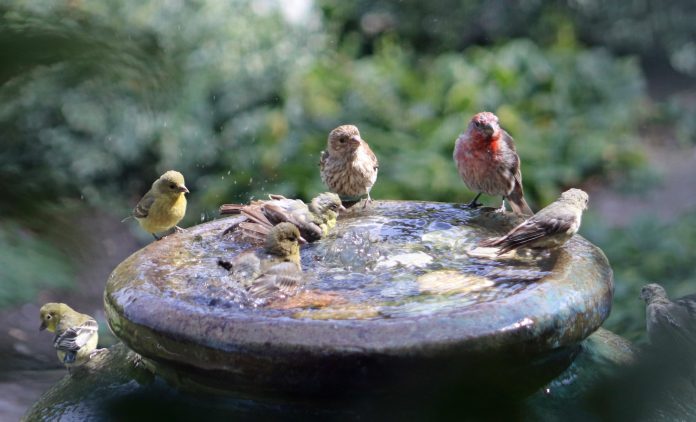

For many people, gardens bring so much positivity, from a rewarding hobby to providing the food needed to survive. So, the last thing a gardener wants to do is lose the fruits of their labor to pests after their hard work and money spent building a bountiful garden.
Uninvited pests, including mice or those irritating grasshoppers, may often kill a garden overnight. Unfortunately, not only are pesticides toxic but who wants to deal with them or eat them? Not me. And, in that thought, I do not think I am alone.
So, let ‘s look at some powerful, but natural ways to help eradicate unwanted pests that behave as though they have a right to your crops.
Related: How to Produce Indoor Hanging Food
Rodents
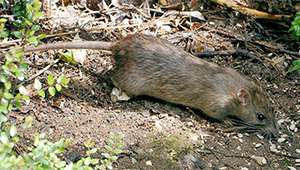

Rodents come in all shapes and sizes, mice, squirrels and chipmunks included. And gardens can all be a concern.
I don’t know about you, but on any given day we see numerous squirrels and chipmunks (and more) in our neighborhood. At some point, I’m sure rats are around too.
They eat a wide variety of crops, leave behind their droppings and can spread disease. I am not even going to get into how fast they can multiply. So, if you see one, you just know there are several others around, or you might be in a couple of weeks’ time!
Here are some healthier choices for your plants, your kids and your pets:
1. Mulch
It may look good and serve as a deterrent to weeds, but it also tends to attract rodents in, searching for cozy nesting spots. If you have your heart set on mulching though, opt for a variety of wood chips that won’t be as comfortable.
2. Your Own Predator
Cats, particularly the mice, are notorious rodent hunters. Cats tend to wander enough of the area to scare most rodents off. Just make sure the cat is fed, with plenty of water, and have shelter.
3. Mint
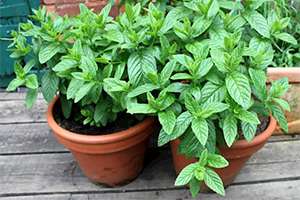

Rodents really don’t like the smell of mint. Plant a couple of pots around the garden and it’ll do all the work for you.
You may scatter dried mint around the garden, as well. It might get expensive however, because it would have to be reapplied after heavy rains, or the fragrance is wearing off.
Another option is to soak the peppermint oil in cotton balls and place them around the garden.
4. Other Herbs
You may plant other herbs, such as thyme, basil, echinacea or garlic. If you surround your garden with these herbs, rodents will think you’ve got it all, and probably leave, because they don’t like it.
5. Pet Food
Rodents love pet food. It won’t attract them if they can’t smell it, or get to it.
If you feed your pets outdoors or store food outdoors, at feeding time, just put out enough for one meal and lock the rest in an airtight container.
6. Fences
Some rodents dig and pull themselves under fences. However, if you secure it by creating an underground barrier (such as a grid hardware cloth) that is at least 6 “deep from the bottom of the fence, burrowing rodents will find it difficult to get through.
7. Onions
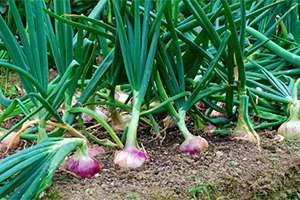

The animals don’t like the pungent onion smell. Simply put one or two onions in which you think you may have a rodent infestation, and it should drive them away.
However the onions are going to rot, so replace them every few days.
You could also grow onions or leeks, adding more fresh produce to your harvest as well.
Word of caution: keep the onions away as they are toxic to your pets!
Related: This Common Driveway Weed is One of Nature’s Most Powerful Survival Plants
8. Instant Potatoes
Sprinkling immediate potatoes around the garden will help you get rid of your mice. Using this alternative may be too harsh for some people but it can be very successful.
Instant potatoes expands in their stomachs, and difficult to digest. Most likely, they’ll go off to find water and die.
Grasshoppers
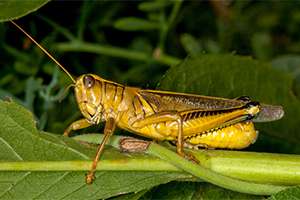

But, what about those pesky grasshoppers?
It’s not just that they are annoying little creatures when you walk through a group of them, but grasshoppers can destroy a good crop.
Here are a few ways to get rid of them, as well as of other small pest:
1. Garlic Spray
Small garden pests, including the grasshoppers, don’t like garlic smell. Make a spray in about 10 cups of water, boiling 2 bulbs (not cloves) for no more than 5 minutes. Let the mix sit all night.
Put it in a spray bottle, and then spray the plant leaves that are troubling them. Every few days, re-apply.
Related: How to Plant and Grow Garlic
2. Flour Dusting
Flour will gum up their mouths, creating the need to go elsewhere to find water. Simply sprinkle a light dusting of all-purpose flour on the leaves of plants that are being bothered. Re-apply as needed.
3. Other Predators
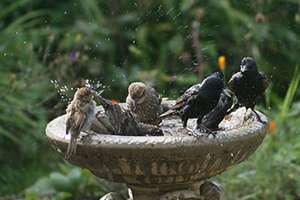

Introduce grasshopper predators, such as birds, into the garden. They love and will help drive grasshoppers away. Bird baths and feeders are a perfect way to bring birds together.
Just bear in mind that some of our crops love birds as well, like berries. Yeah, that’s not going to fit for all gardens.
4. Grass Trap
Choose a nearby area where you can let the grass flourish. Grasshoppers enjoy long grass and flock to it, making it easier to keep them from crops, or to catch them better.
So, if you’ve worked to build a garden, there’s plenty of options to preserve it. You could try any of the above, or any of them combined.



















